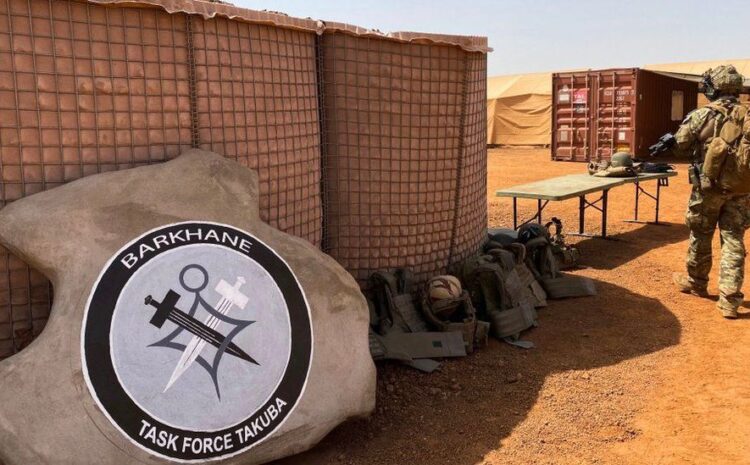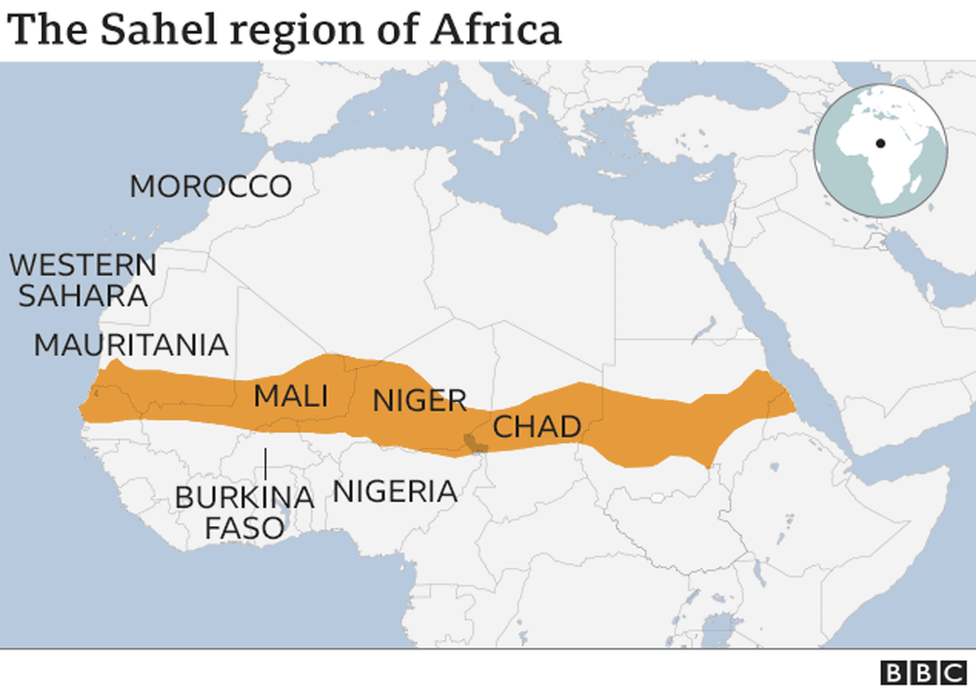
IMAGE SOURCE AFP image caption Sahrawi was killed by French forces stationed in the Sahel region
Adnan Abu Walid al-Sahrawi formed Islamic State in the Greater Sahara (ISGS) in 2015.
The group is blamed for most attacks in the region, including the targeted killing of French aid workers in 2020.
Mr Macron called Sahrawi’s death “another major success in our fight against terrorist groups in the Sahel”.
The Sahel is a vast, three million sq km (1.16 million sq miles) area that stretches across Africa south of the Sahara desert, from Senegal in the west to Somalia in the east.
Mr Macron did not disclose the location or any details of the operation.
She added that it was “a decisive blow against this terrorist group”, and that the “fight continues”.
Sahrawi, who was born in the disputed territory of Western Sahara in 1973, had been a member of the Polisario Front which is fighting for independence from Morocco.
Last August, Sahrawi personally ordered the killing of six French charity workers and their Nigerien guides and drivers, the French presidency said.
The killings followed a series of large-scale attacks on military bases in Mali and Niger in late 2019. The group was also said to have been behind a deadly attack on US troops in Niger in 2017.
Jihadist attacks also spill into neighbouring Nigeria.
 French forces have been hunting jihadist cells in the region for years. In 2013, France intervened to prevent an al-Qaeda affiliate from taking over the Malian capital Bamako.
French forces have been hunting jihadist cells in the region for years. In 2013, France intervened to prevent an al-Qaeda affiliate from taking over the Malian capital Bamako.There are several missions running concurrently in the Sahel – including a UN peacekeeping mission, comprising 56 nations and 14,000 troops, and the French-led counter-terrorism mission Operation Barkhane, which is backed by US intelligence.
In June, Mr Macron announced that Operation Barkhane would end in its current form, and that French troops would be cut in the region over the course of several years. Last month, Chad announced it was halving its counter-terrorism force in the region.
After announcing Sahrawi’s death, Mr Macron added in a tweet: “The nation is thinking this evening of all its heroes who died for France in the Sahel in the Serval and Barkhane operations, of the bereaved families, of all its wounded.

Show of strength from France
Analysis by Mayeni Jones, BBC West Africa correspondent
Despite France planning to withdraw more than 2,000 troops from Mali by early next year, President Macron is keen to show his allies that it is still capable of striking at the heart of jihadist organisations in the strategically important region.
The European Union (EU) and US look to France for leadership in the fight against jihadist groups in the Sahel.
There are fears that, with both IS and al-Qaeda focusing their attention on Africa, an already volatile continent could be further destabilised, increasing the flow of migrants to Europe.
France’s decision to reduce its troop strength risked sending the message to its allies that the fight against the jihadists was a lost cause. The death of Sahrawi enables France to reassure them that this is not the case.
But Sahrawi’s death will not necessarily lead to an end to jihadism in the region. That may still be a long way off.
